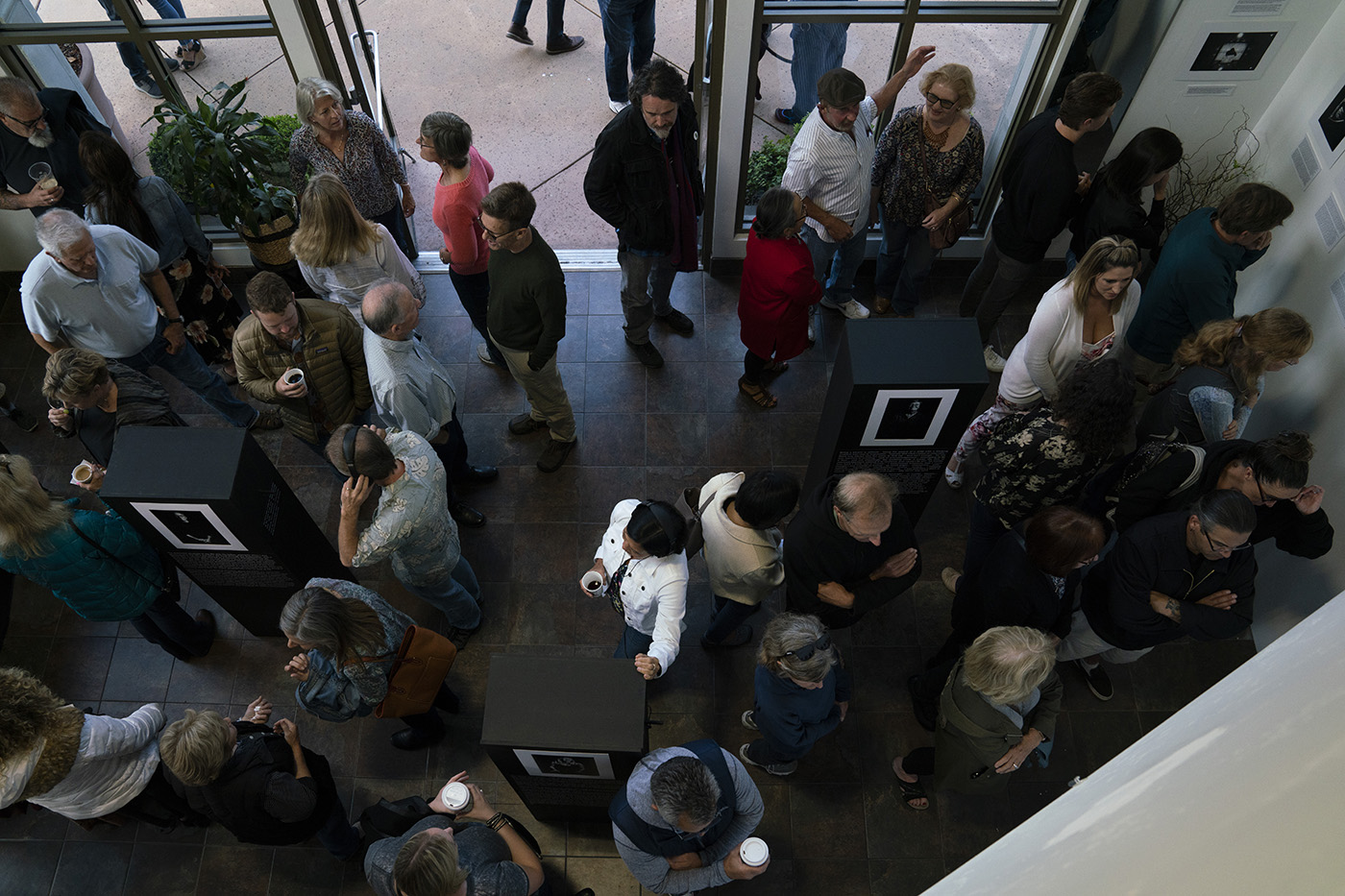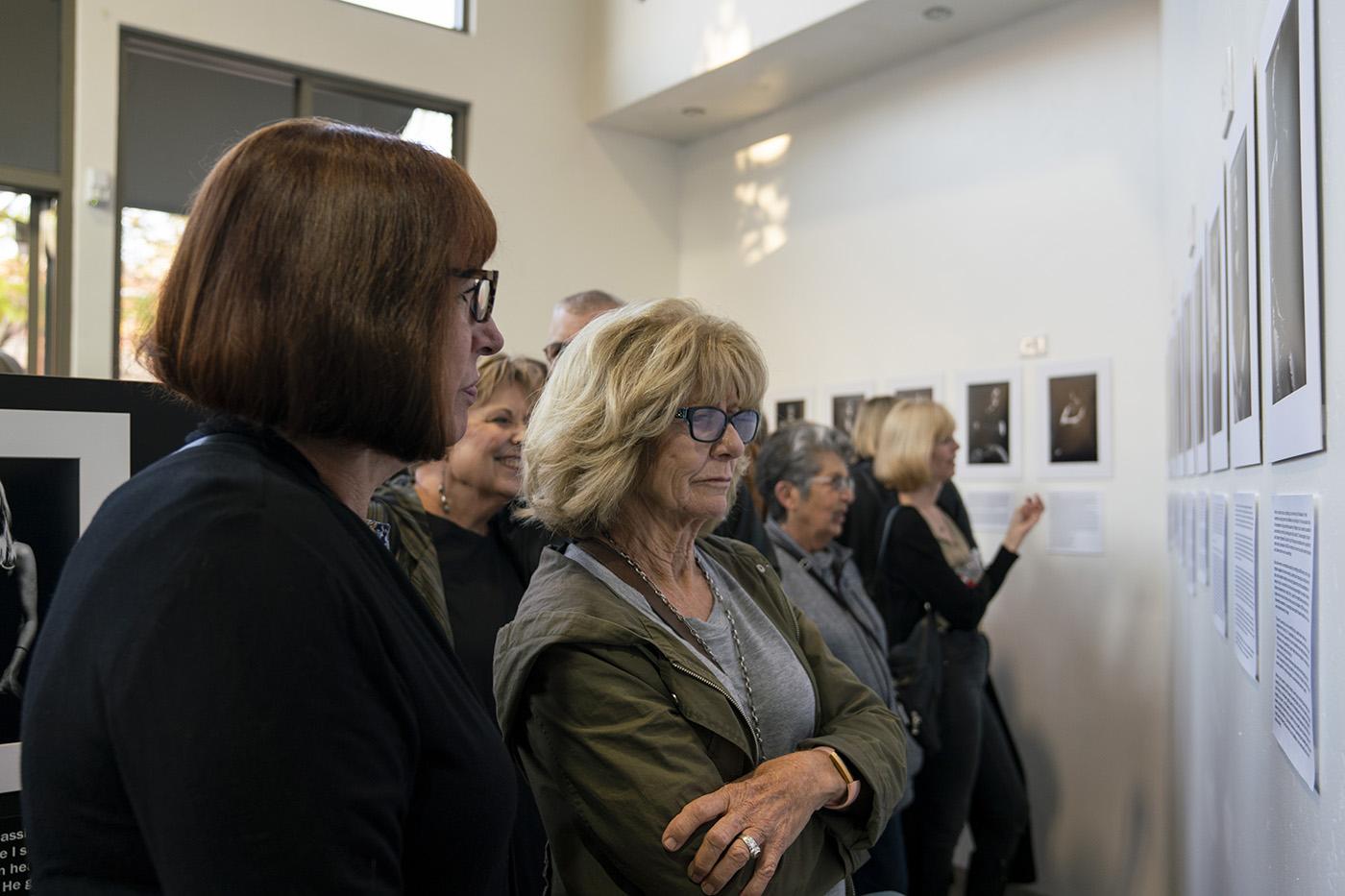With alcoholism affecting loved ones in her life, communications studies senior Paula Boucher decided to humanize the “hushed” disease for her senior project.
The exhibit, “Silenced Voices: Stories from those affected by alcoholism,” showcased the stories of 22 volunteers all affected by someone else’s alcoholism at the SLO Museum of Art Pop-Up Gallery May 31.
“People wanted to talk about it, people wanted to have this discourse and people want to connect with each other in a way that society has historically made us feel very stuck and very silent and very much unnecessarily shamed,” Boucher said.
Within the first day, Boucher found more than 50 people who were willing to participate in the exhibit.
“Right there is exactly why I’m doing this, because we are all affected by it and it’s not something that we talk about regularly,” Boucher said.

Along with getting the stories of those affected by alcoholism, Boucher worked with photographer Jon Furlong and College of Architecture and Environmental Design shop manager David Kempken to bring the exhibition to life.
Furlong said there was an emotional impact of adding photography to the exhibit. He captured portraits of people who shared their stories. For those that wanted to remain anonymous, he found unique ways to photograph them without giving away their identity.
“You are showing real emotion [from] people who aren’t afraid to be known, that they have been through it and other people that are still [going through it] have a little hinder of feelings,” Furlong said.

Communication studies professor and project adviser Leslie Nelson said one of her favorite parts of advising Boucher for this project was watching the message behind this project be put into action.
“It’s so important that we feel comfortable to talk about our vulnerabilities and I think that is what this project is at its core, being affected by alcoholism,” Nelson said.
Boucher said she put countless hours into this project to ensure that she was properly serving the community.
“Knowing that if just one person is able to walk away from it feeling like, ‘Wow maybe I’m ready to talk about this,’ or maybe ‘I was able to connect to somebody.’ If I did it for that, great,” Boucher said. “Because I am from here and it is very much a community issue and a community event just to bring as many people there as possible to really shine light on the fact that we aren’t alone in this.”

